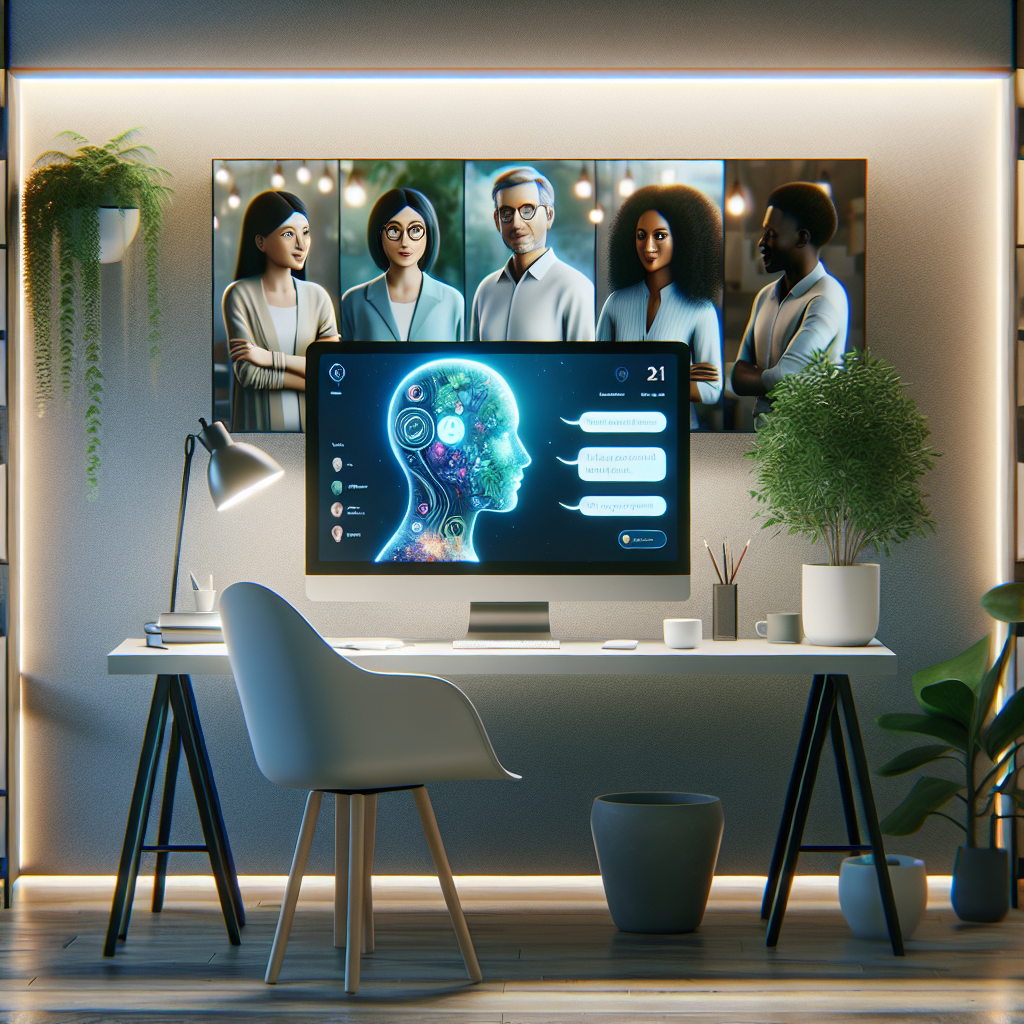AI Meets Mental Health: How OnRL-RAG is Pioneering Personalized Support

AI Meets Mental Health: How OnRL-RAG is Pioneering Personalized Support
In a world that feels increasingly overwhelming, mental health has become a critical conversation topic. From managing stress during finals to navigating the complexities of anxiety and depression, many of us are in search of the right support. Enter the innovative Online Reinforcement Learning-based Retrieval-Augmented Generation (OnRL-RAG) system. This groundbreaking AI tool not only augments conversations about mental health but also tailors them to individual needs—consider it your personal mental health chat buddy that learns and evolves with you.
Let’s dive deeper into how this new technology can revolutionize mental health support, making it more personalized than ever before.
What is OnRL-RAG and Why Does It Matter?
At its core, OnRL-RAG is an AI-driven system designed to enhance the experience of digital dialogue assistants, especially in mental health contexts. Traditional chatbots can be limited by their pre-programmed responses and information that becomes outdated quickly. You know that feeling—you ask for help and get a “stock answer”? Frustrating, right?
This is where OnRL-RAG gets clever. It combines the capabilities of large language models (LLMs)—those smart algorithms behind chatbots, like ChatGPT—with a system that retrieves the latest and most accurate information. This means that instead of relying solely on pre-set data, OnRL-RAG can pull in real-time responses and adjust its advice based on user feedback. It’s like having a conversation with a friend who always knows what’s up!
The Science Behind OnRL-RAG: How It Works
Now, let’s break down the techy details without overwhelming jargon, shall we?
1. Retrieval-Augmented Generation (RAG)
Think of RAG as a clever librarian. When you have a question about mental health, RAG sorts through a massive database to pull out relevant and up-to-date information. This is a game-changer because, traditionally, AI responses might not include the most current studies or advice. RAG ensures that responses are not just informed but accurate.
2. Real-Time Personalization
For many people, mental health struggles differ based on age, background, or even daily circumstances. Imagine you’re a college student stressing out about exams—your concerns might be different from someone a decade older juggling family and work responsibilities. OnRL-RAG acknowledges these differences by using Reinforcement Learning from Human Feedback (RLHF). This means it learns from real conversations, adapting its approach based on what users find helpful.
3. Dynamic Dialogues
Instead of sending generic advice, OnRL-RAG tailors its responses dynamically, engaging with users in a way that feels more authentic and personalized. It continuously updates and improves its database based on interactions, ensuring that each user feels heard and valued. There’s a delightful back-and-forth—like a dialogue dance!
Real-World Applications: Making a Difference in Mental Health
The practical implications of OnRL-RAG are abundant. For example, research gathered from 2028 college students helped develop this system, emphasizing real experiences over theoretical approaches. Here’s how it can positively affect mental health:
1. Tailored Advice for Stress Management
If you’re facing a particularly stressful week with exams, using OnRL-RAG, you might receive targeted techniques for managing stress, like prioritizing tasks or mindfulness tips focused on studying. It’s not just about blanket recommendations; it’s about finding what works specifically for you.
2. Addressing Diverse Needs
Everyone has unique needs. OnRL-RAG can help users from varied demographics by understanding their contexts—say, a Hispanic woman in STEM might face different challenges than her peers. This model enhances representation and relevance, making the support offered more beneficial.
3. Real-Time Feedback Mechanism
Perhaps the coolest feature is how it gathers feedback in real-time. If you try a stress-relief technique suggested by OnRL-RAG and find it unhelpful, you can share that. The system learns and adapts moving forward, making each interaction more insightful.
Key Takeaways
-
Personalized AI Support: OnRL-RAG represents a major leap towards more responsive and personalized mental health support, especially for college students and young adults.
-
Real-Time Adaptation: By using continual feedback, the system improves on its responses, ensuring answers are relevant and tailored to individual experiences.
-
Grounded in Research: The development of OnRL-RAG comes from real-life, diverse survey data, making it practical and grounded in actual user experiences.
-
Dynamic Interaction: The back-and-forth learning approach means that every interaction helps refine the model, leading to more useful and effective mental health advice.
-
Potential for Broader Applications: While currently focused on mental health, the underlying technology has the potential to transform support across various fields—be it education, healthcare, or finance.
In conclusion, imagine having an AI assistant that evolves with you, providing support tailored not just to your questions but to your unique context. OnRL-RAG is paving the way for future dialogue systems and is a shining example of how technology can positively impact mental health conversations. Let’s keep our fingers crossed for further developments that make such interaction even richer and more meaningful!
Keep an eye on this technology; it might just change the way we think about mental wellness and support forever.
If you are looking to improve your prompting skills and haven’t already, check out our free Advanced Prompt Engineering course.
This blog post is based on the research article “OnRL-RAG: Real-Time Personalized Mental Health Dialogue System” by Authors: Ahsan Bilal, Beiyu Lin, Mehdi Zaeifi. You can find the original article here.




